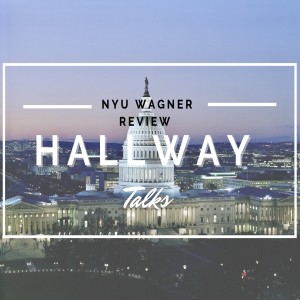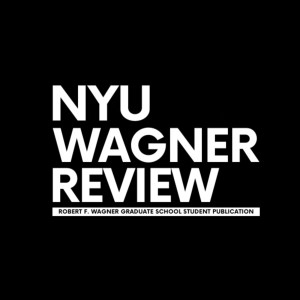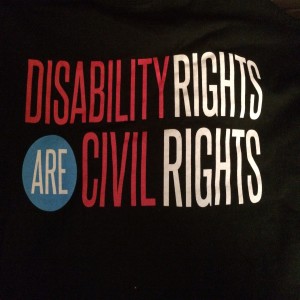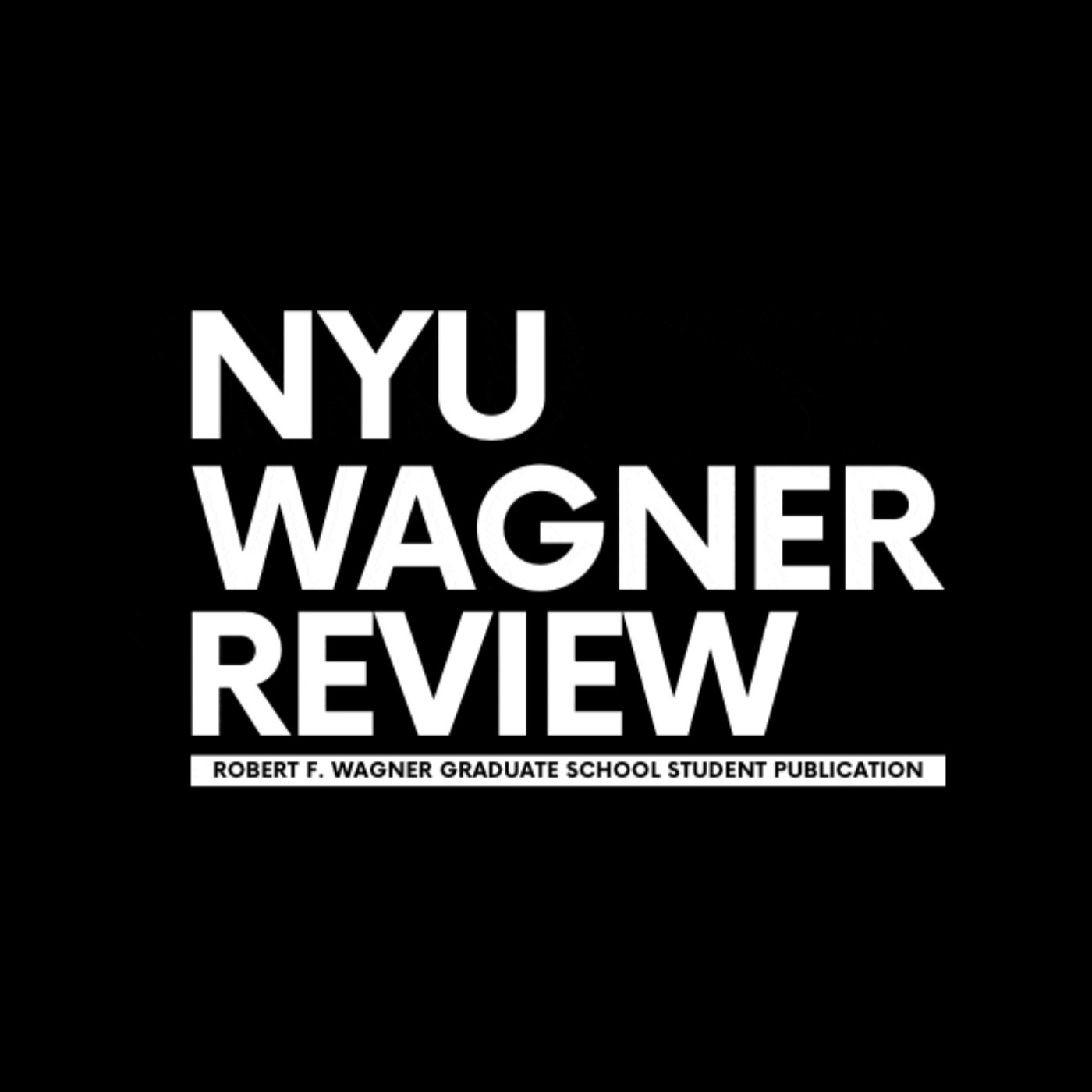Episodes

Thursday Sep 03, 2020
Thursday Sep 03, 2020
Policy analysis and political hot-takes lead NYU Wagner MPA candidates Rhea Almeida and Luisa Portugal on a journey into the false narratives introduced by members of the Republican Party, and unexpected turn of events involving the upcoming 2020 United States presidential election. NYU Clinical Professor of Public Service John Gershman analyzes the 2020 Republican National Convention held last week, the politics of the Affordable Care Act – known as ObamaCare, the rise of Alexandria Ocasio-Cortez (D-NY), and much more. He also emphasizes the importance of voting by mail early, and voting altogether.
Guest Speaker:
John Gershman is a Clinical Professor of Public Service and the Director of International Capstone Programs at Wagner. He is also a co-founding member of the New York Southeast Asia Network. Previously he was the Director of the Global Affairs Program at the International Relations Center and the Co-Director of Foreign Policy in Focus, a progressive think tank on U.S. foreign policy and international affairs. He has worked at a series of nonprofit think tanks since the early 1990s, including the Institute for Food and Development Policy and Partners in Health. He is a co-founder of the New York Southeast Asia Network.

Tuesday Sep 01, 2020
Reflections on the Effects of Systemic Racial Biases in America
Tuesday Sep 01, 2020
Tuesday Sep 01, 2020
The American criminal justice system has continuously failed to hold police officers accountable for excessive force against Black Americans. It is hard to ignore the injustices so many Black Americans face today. In the middle of a global pandemic, yet again we mourn the death of an unarmed Black man, George Floyd. On May 25th, 2020, Officer Derek Chauvin along with two additional officers pinned Floyd to the ground with Chauvin’s knee compressed on his neck for eight minutes, ultimately killing him. Two medical examiners— one hired by the family of George Floyd and the other hired by Hennepin County— have concluded his death was a homicide. Four days later, Minnesota’s Hennepin County District Attorney Mike Freeman announced that after reviewing video evidence and autopsy reports, his office “does not have enough evidence to criminally charge the four police officers” with his death— setting off what would be days of national outrage and protest. As of today, Officer Chauvin has been the only officer charged with his death, the case has since then been handed over to the Minnesota Attorney General Keith Ellison for prosecution.
As we’ve seen with previous cases of fatal police brutality, it is unlikely that all of the officers involved will be held accountable for their actions. Not only is it important to seek justice for Floyd and many before him, but it’s more important that the American legal system works harder to eradicate systemic racial bias.
Alexandra Kirton and Tasia Hawkins shed a light on the racial inequalities their family has faced, how non-Black allies can engage in these conversations, along with their experience on what it’s like to be Black in America.
TRANSCRIPT:
0:00: Welcome from hosts Rhea and Luisa
0:34: Message from Tiffany Rose Miller, Editor-in-Chief of The Wagner Review
3:50: Luisa Introducing speakers Alexandra Kirton and Tasia Hawkins
16:47: Wrap up
RESOURCES TO DONATE:
- ACLU – Call for Justice for George Floyd
- Black Lives Matter
- Black Visions Collective
- Brooklyn Community Bail Out Fund
- National Bail Out
- Until Freedom
- Justice League NYC
- Reclaim the Block

Sunday Aug 30, 2020
Sunday Aug 30, 2020
July 26, 2020 marked the 30th anniversary of the signing of the Americans with Disabilities Act (ADA). While there has been tremendous progress made during the disability rights movement, there is still a long way to go. Emily Finkelstein talks with Nicole Jorwic, the Senior Director of Pubic Policy at The Arc, on the ADA in 2020 and her recommendations to strengthen the ADA;
Emily also sits down with Abigail Shaw, a mentorship coordinator at Learning Ally to discuss her hopes for the future of the disability rights movement as someone who is deeply and personally impacted by it.
Transcript:
0:00: Welcome from Emily Finkelstein
3:43: Nicole Jorwic discuss the most impactful parts of the Americans with Disabilities Act.
20:40: Abigail Shaw discuss how we can better support Americans with disabilities.
Photo Credit: rosefirerising
GUEST SPEAKERS:
Nicole Jorwic is the Senior Director of Public Policy at The Arc, a national community-based organization advocating for and serving people with intellectual and developmental disabilities and their families. Prior to joining The Arc policy team Nicole served as Senior Policy Advisor for the state of Illinois. Prior to that appointment, Nicole served as the CEO/President of the Institute on Public Policy for People with Disabilities where she continued the Institute’s mission to improve the lives of people with disabilities and assisted the leadership of the state of Illinois in developing public policy driven best practices in serving individuals with disabilities. Nicole is also an accomplished special education attorney and an advocate for students with disabilities, with a focus on transition-aged youth. Nicole received her JD and Child and Family Law Certificate, from Loyola University Chicago. She received her BS from the University of Illinois. Nicole is also a sibling; her brother Chris is 31 and has autism.
Abigail Shaw strives to educate the public on persons with disabilities through her hobbies and work. She received a BS in Music Industry Studies from Appalachian State University and is currently pursuing a Master’s in Social Work from Fordham University. Abigail works at Learning Ally, an educational solutions organization primarily serving individuals with print related disabilities. At Learning Ally, Abigail serves as the College Success Program’s mentorship coordinator for college students who are blind and contributes her skills with audio and recording to the production process of Learning Ally’s audio books. As a long-distance runner, Abigail is a member and co-captain of the New York City chapter of Achilles International, an organization promoting mainstream athletics for people with disabilities. She has competed in several national half and whole marathons and triathlons. Since June of 2019, she has been on the Advisory Committee on Transit Accessibility for New York City Transit, and currently acts as the co-chair. Whether by plane, train, or automobile—Abigail’s preferred method of transportation is with her yellow lab guide dog from Guiding Eyes for the Blind by her side.

Thursday Aug 27, 2020
Thursday Aug 27, 2020
At the top of the episode, hosts Rhea and Luisa talk about the unlikeliness of developing herd immunity in the US, and the subsequent risks of reopening schools in the Fall.
On today’s episode, The Wagner Review features two NYU undergraduate students. NYU Tandon senior Nelson James walks us through the technological tools that can make the online learning experience adaptive and personalized for students during the coronavirus pandemic.
Founder and director of Project Firefly, and NYU pre-med student Luisa Portugal (yes, there’s two of them!), discuss her efforts to help children in orphanages cope during COVID-19.
TRANSCRIPT:
0:00: Welcome from hosts Rhea and Luisa
0:46: Top news of the week
7:05: Luisa Portugal discuss her efforts to help children in orphanages cope during COVID-19.
12:58: Nelson James walks us through the technological tools that can make the online learning experience adaptive and personalized for students during the coronavirus pandemic.

Thursday Aug 27, 2020
Episode 01 – Mutual Aid Efforts in the Face of COVID-19
Thursday Aug 27, 2020
Thursday Aug 27, 2020
The Wagner Review podcast series include’s NYU policy and law students that will analyze policy issues and solutions emerging in real-time around the country.
In the midst of the COVID-19 pandemic, the United States has seen record-breaking unemployment rates by US citizens. With many people out of work and unable to pay living expenses, food scarcity is on the rise as the economy reels. Undocumented immigrants and people living in particularly low socioeconomic neighborhoods, have felt the raft of being unable to pay for food and provide for their families. During this time, we’ve seen many mutual aid projects form throughout New York City and New Jersey, where community residents are taking the initiative to care for those unable able to receive adequate assistance from the government.
Stephanie Rosas comes on The Wagner Review Podcast Series to discuss the mutual aid projects she has been involved in, and what it’s been like giving back to the community during the COVID-19 pandemic.
TRANSCRIPT:
0:00: Welcome and introduction from host Kyle Roland
1:04: Stephanie Rosas discuss her mutual aid efforts in the midst of a pandemic
Mutual Aid Links:

Thursday Aug 27, 2020
Coronacast Episode 06 – Public Schools & Courtrooms in the Time of COVID-19
Thursday Aug 27, 2020
Thursday Aug 27, 2020
In March, the outbreak of the coronavirus led to an immediate and sudden shut down of the economy. So how did institutions and systems cope? On today’s episode of Coronacast, hosts Rhea and Luisa discuss ICE’s new immigration policy that forces international students out of the country if universities return online in the fall. Our first guest Jasmine Jeffers sheds light on public school systems, their response to the pandemic, and how going online accentuated existing educational inequities. Attorney Brian Farkas walks us through how the United States judicial system has responded to COVID-19, and the various legal implications of systems going online.
TRANSCRIPT:
0:00: Welcome from hosts Rhea and Luisa
0:40: Top news of the week
4:50: Jasmine Jeffers sheds light on the effects of COVID-19 on the public school systems
13:26: Brian Farkas, Esq, walks us through how the United States judicial system has responded to COVID-19
News segment:
- ICE Says International Students Can’t Stay in the US for Online Fall Classes Amidst COVID
- Fauci Says U.S. Could Reach 100,000 Virus Cases a Day as Warnings Grow Darker
- 239 Experts Show Evidence Claiming Coronavirus is Airborne
- Single Case of Bubonic Plague Found in Inner Mongolia, WHO Says it is Not High Risk

Thursday Aug 27, 2020
Thursday Aug 27, 2020
On this episode of Coronacast, Mikeala Sparks walks us through the disproportionate impact of the COVID-19 pandemic on Native Americans. The Navajo Nation currently has the highest cases per capita in the US, and she explains how this crisis could be further exacerbated by an under-funded Indian Healthcare Service. Next, Chiamaka P. Ojiako traces the recent history of epidemics and pandemics, and the evolving role of the World Health Organization in crisis management. At the top of the episode, hosts Luisa and Rhea analyze this week’s COVID-19 milestones and the risks of reopening too soon.
TRANSCRIPT:
0:00: Welcome from hosts Rhea and Luisa
0:38: Top news of the week
5:14: Mikeala Sparks on COVID-19 Poses a Threat to Native Americans
13:49 Chiamaka P. Ojiako on The evolving role of the World Health Organization in pandemics
News segment:
- US Coronavirus Updates – NYTimes
- Governor Cuomo Warns NY Residents of Breaking Violation, Aimed at Avoiding Second Wave
- Beijing Sees Fresh Coronavirus Cases
- India Reopens Even as Coronavirus Cases Rise
- Brazil Hits World’s Highest Death Toll, Bolsonaro Continues Reopening
- Dr. Fauci Corrects WHO Comment on Asymptomatic Spreaders of Coronavirus
- Trump Administration Erases Transgender Civil Rights Protections in Health Care
Resources and information about the Native American population:
- Population map by Mikeala Sparks
- Native Philanthropy Organization – Resource Center
- Native Partnership Organization
- National Congress of American Indians

Thursday Aug 27, 2020
Thursday Aug 27, 2020
On this episode of Coronacast, Kyle Roland walks us through the trade offs between how contact tracing can help us contain the COVID-19 pandemic, and the risks of large-scale public health data collection. Next up, Alexandra Kirton sheds light on the gaps in risk communication and what public officials can do better inform the public.
Our news segment at the beginning of the episode looks at New York City’s Phase 1 reopening amidst Black Lives Matter protests.
TRANSCRIPT:
0:00: Welcome from hosts Rhea and Luisa
0:33: Top news of the week
4:35: Kyle Roland on Contact Tracing & the Risks of Public Health Data Collection
12:51: Lexi Kirton on Risk Communication during this Pandemic
WASHINGTON SQUARE PARK PROTEST AUDIO SPEAKERS:
- Elder Kirsten John Foy, Founder, Arc of Justice
- Erica Ford, CEO of LIFE Camp
RESOURCES TO DONATE:
- ACLU – Call for Justice for George Floyd
- Black Lives Matter
- Black Visions Collective
- Brooklyn Community Bail Out Fund
- National Bail Out
- Until Freedom
- Justice League NYC
- Reclaim the Block
NEWS:

Thursday Aug 27, 2020
Thursday Aug 27, 2020
On this episode of Coronacast, we focus on the global south. NYU Wagner students Teguh Sassongko takes us through the crash of the tourism industry amidst the COVID-19 pandemic, with a special look at his home country of Indonesia. Next, fellow student Ana Maria Raymundo discusses the gaps in governance in the Philippines, and how civil society organizations are stepping up. Tune in for our first international episode as we also give you a quick recap of world news this week.
NEWS SEGMENT LINKS:
- Many killed as Cyclone Amphan tears into India, Bangladesh coasts
- Brazil widens use of malaria drugs in mild coronavirus cases
- On tape, Bolsonaro cites protecting his family in push to swap top Rio cop: source
- Will Mandatory Face Masks End the Burqa Bans?
- Brazil Has The 2nd-Highest Number Of The Coronavirus Cases In The World
- An Incalculable Loss (NYT Front Page)
ORGANIZATIONS MENTIONED BY ANA MARIA:

Thursday Aug 27, 2020
Thursday Aug 27, 2020
On this election-special episode, NYU Wagner students Abe Nelson and Alexis Richards discuss the pandemic and universal ‘Vote by Mail’ – a policy that could allow all American voters to mail in their ballots in the 2020 Presidential election. Could this keep voters safe amidst the Coronavirus outbreak? We break down the pros and possible cons for you, while also providing a short news update of the week.
THE OBSTACLES:
- Printing and sending a ballot and prepaid return envelope to every registered American, then processing those ballots, would easily cost $2 billion.
- New procedures would need to be put in place rapidly in 45 states (UT, HI, OR, WA, and CO already have universal vote by mail), since states run their own elections.
- President Trump claimed voting by mail is vulnerable to fraud and harmful to Republican candidates.
- Many states actively suppress voter access, especially for voters of color. These same states were disproportionately active in purging 17 million voters from voting rolls between 2016 – 2018. There is currently little incentive for these state officials to change course.
TRANSCRIPT:
0:00: Welcome from hosts Rhea and Luisa
0:40: News segment
3:50: Interview with Abe and Alexis
18:16: Wrap up
NEWS SEGMENT LINKS:
- At Senate Hearing, Government Experts Paint Bleak Picture of the Pandemic
- Trump calls Fauci remarks on risks to reopening schools, economy unacceptable
- As more than two-thirds of states reopen, the U.S. faces a delicate moment.
- New York Extends Stay-At-Home Order, Allows Some Areas To Begin Reopening
- FDA clears home testing kits
- Portugal gives migrants and asylum-seekers full citizenship rights during coronavirus outbreak
- Moderna Coronavirus Vaccine Trial Shows Promising Early Results
- Trump says he has been taking hydroxychloroquine, a drug whose effectiveness against the virus is unproven.
VOTE BY MAIL RESOURCES/LINKS:

